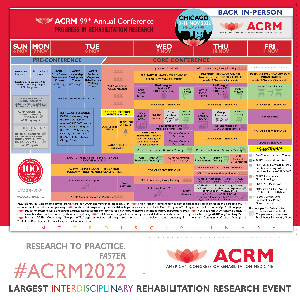Margaret S. Coats-Thomas
MD/PhD Student
Northwestern University Feinberg School of Medicine
I do not have any relevant financial / non-financial relationships with any proprietary interests.
My long-term goal is to conduct translational, quantitative research on mechanisms underlying complex
shoulder diagnoses to allow for more comprehensive surgical and rehabilitative treatment of these pathologies.
My undergraduate research introduced me to the potential for mechanics research to inform our understanding
of the pathophysiology and implications of musculoskeletal injury. During my time at Massachusetts General
Hospital, I discovered the complexity of the shoulder joint and the potential for scientific research to inform
clinical practice. My prior experiences have prepared me to be successful in my pursuit of a career as a
physician scientist practicing orthopaedic surgery and conducting research on mechanics of shoulder injury
and rehabilitation.
At Northwestern University Feinberg School of Medicine, I am enrolled in the NIH-funded Medical Scientist
Training Program. As a member of the program, I am concurrently pursuing both a Doctor of Medicine degree
and a PhD in Biomedical Engineering. This program trains future physician scientists who aim to intertwine
scientific research with clinical medicine. The program begins with two years of clinically-focused medical
coursework, which provides the foundational clinical knowledge necessary to design scientific research studies
capable of directly impacting patients. During these first two years, I enhanced my understanding of the
musculoskeletal system and actively participated in clinical care of patients with complex diagnoses. These
experiences further inspired my aspirations to pursue a career as an orthopaedic surgeon scientist, taking
advantage of my clinical expertise to identify areas in which scientific research has the potential to augment
clinical knowledge. I completed the scientific portion of my medical training and the neurology component of
my clinical clerkship requirements and am now conducting full-time research in pursuit of my PhD.
I have organized my individual training and my PhD research project based on my dedication to conducting
innovative, quantitative engineering research addressing gaps in clinical knowledge. As the leader of my
project, I have the unique opportunity to foster communication between an established research scientist and
an experienced clinician, which is a role I will maintain as I finish my education and begin my career as a
physician scientist. Additionally, I will complete my research in collaboration between Northwestern University
and the Shirley Ryan AbilityLab (formerly Rehabilitation Institute of Chicago). The Shirley Ryan AbilityLab, an
integrated clinical and translational research hospital, is an optimal setting to study and care for the patient
population I plan on including in my research. Thus, I am in a premier environment to explore mechanisms of
shoulder injury and rehabilitation and apply what I learn not only to my future patients but to advance the field
of orthopaedic surgery as a whole.
Poster(s):
- Muscle Activity in Primary Shoulder Movers is Associated with Increases in Translational Glenohumeral StiffnessThursday, November 10, 202212:47 PM – 12:52 PM

.jpg)
